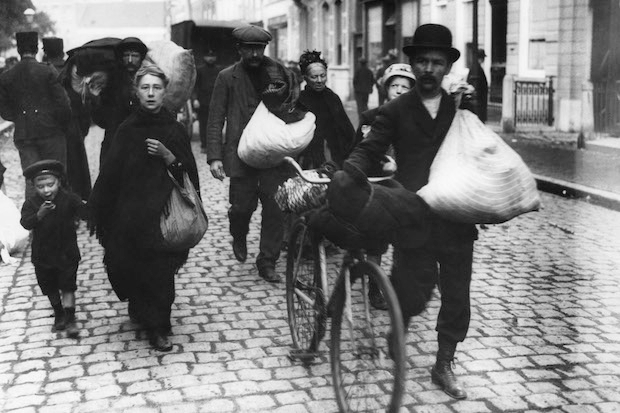From News of the Week, The Spectator, 9 January 1915:
A Commission, under the chairmanship of Sir Ernest Hatch, has been appointed by the Government to advise and help local Refugee Committees in establishing workshops for Belgian refugees. In the recent Report of the Belgian Refugees Committee it was pointed out that the refugees were divided into three groups: (1) Those trained in industries in which there happens to be a shortage of British labour, such as the armament, woollen, agricultural, and motor industries. (2) Those trained in industries in which there is no shortage: tailors, dressmakers, printers, ironmongers, fancy goods makers, and carpenters. (3) Those who have had a professional training. The first group can be easily disposed of; and for the third it is scarcely possible to find openings. Sir Ernest Hatch’s Commission concerns itself with the second group.
The occupation provided for this group will, of course, be temporary, and it is undesirable that it should conflict with British labour, It has therefore been decided to set the refugees to work at producing clothes, boots, furniture, and other household articles for the use of the Belgians themselves. The local Refugee Committees in industrial centres will be asked, in conjunction with the local authorities, to form Employment Committees somewhat on the lines of the Old Age Pension Committees. These Employment Committees will be invited to establish workshops (borrowing, so far as possible, the necessary equipment), and it may be that different trades will be brought together under one roof. Such workshops, in which a certain remuneration is paid, have been organized at Leeds and Hyde. The goods will not be sold, but will be available for the use of the refugees either immediately or on their return to Belgium. The Commission will be the central authority, having direct powers over the Employment Committees. It is expected that a certain reshuffling” of the refugees will be necessary. The scheme has the entire approval of the Official Committee of Belgians. Inquiries may be addressed to Mr. H. A. Leggett at Winchester House, St. James’s Square, S.W.






Comments